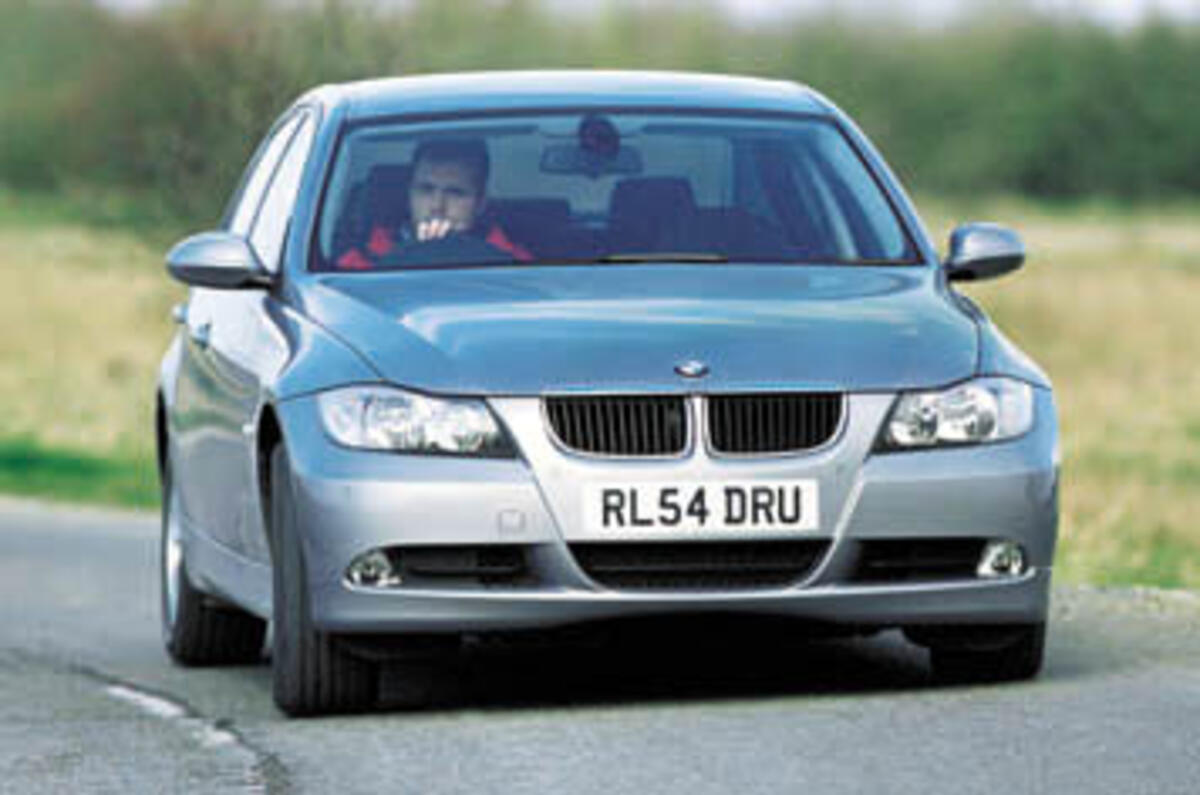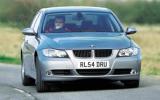Rain is an irritation in the new 320i. On the one hand it’s a constant reminder that even 150bhp is no match for a slippery road and modern tyre technology. And on the other, it makes a dreadful racket on the windscreen, chinking and fizzing as it hits the glass and flows over the roof.
Yes, that’s right, the new 320i is now so refined that on a sodden motorway cruise the most irksome noise intrusion is precipitation-slap. At one point I think I heard the engine, but in fairness it could have been climate control playing with the ambient.
There can be no doubt that this is a very talented car. Running through the mental check list of what it needs to achieve I’m at a loss to find any serious deficiencies. Perhaps the rear seat could better accommodate six rather than four buttocks. A water temperature gauge is often useful and grey cloth always triggers NHS comparisons. Otherwise, it’s a gem. Which very few people will buy.
Under the bonnet
As a founding member of the league against diesel engines, I feel compelled to recommend this car to you above its 320d compatriot, but unless you’re a bigot (like me) or have a rare medical disorder precluding the use of diesel pumps, I’m going to struggle.
The case for the defendant, the sweet little 320i, is quite simple. It will rev. Select second gear, push the long-travel throttle into the carpet and watch the rev needle swing all the way round to the number seven. It’s a decent puller, with 148lb ft of torque at 3600rpm and there’s enough of the 150bhp available at the top end to make exercising the rev needle a worthwhile experience. It has to be one of the smoothest, most neatly installed four-cylinder engines ever produced. But then we already knew that because it’s the same Valvetronic unit that was installed in the 1-series last year. In which, incidentally, it was also very good.
But the 320d has so much more muscle (251lb ft, 163bhp), making a case for the petrol engine is difficult in the extreme. Even so, I’ll try. Right. It’s um, well it’s not a diesel for a start. And the spec sheet tells me it’s 95kg lighter on the scales. Ah ha.
This matters. Never has there been a sweeter-handling front-engined, rear-drive small saloon than the 320i. If you love nothing more than feeling the integrity, balance and agility of cars, then I can honestly recommend this car over the 320d. That will probably account for less than 50 people in the UK, but it’s a fact all the same. Breaking down what it is about the handling that most impresses is nearly as tricky as the process above.
The steering is bang-on for accuracy – not perfect for feel – but better than anything else in the class. The Michelin Primacy run-flat tyres finally confirm that the Bridgestone RE050s used on the new 5-series were sub-standard, because this car rides beautifully. Not softly, but with a well-damped precision that’s normally the preserve of much more expensive cars.
But perhaps the single thing that clinches the deal is the immense rigidity of the 3-series chassis. In most road cars this is a difficult thing to assess, because most begin to shimmy under similar loads. Not the 3-series: it will thump into hideous lumps and ruts without the shell shaking or the steering column shuddering. What a platform for suspension and ultimately wheel control.











Join the debate
Add your comment
Re: BMW 320i SE
why's A4 more expensive than 320i ?